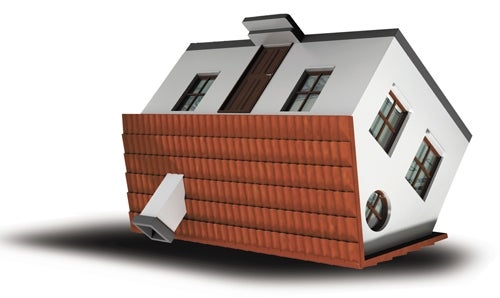In more than 20 years of property investment, development and management, Jim Grinham, owner of Worcester Realty Development LLC, has seen just about everything.
But recently, he’s had to deal with a level of competition for cheap houses that rivals anything he’s seen. With a large inventory of bank-owned and foreclosed properties selling for less than $100,000, Worcester has attracted the attention of cash investors, and while some have the smarts and judgment necessary to be successful property investors, others could easily find themselves on the road to ruin.
Real estate agents like Jeff Hall, president of the Worcester Regional Association of Realtors, may tend toward the optimistic when it comes to these properties. Hall said he’s seen cash investors begin to snap up multi-family homes at rock bottom prices in order to resell them once they’re brought back to life.
But whether that strategy truly works for a would-be investor depends on the property and the investor himself, Grinham said.
And Grinham, who has flipped his share of properties, warned that the current market “is a double-edged sword.”
Bank On It
The process of flipping homes “is part of a normal cycle,” said Richard Leahy, president of Webster Five Cents Savings Bank. And today, flipping houses may help put the residential market back on a path to normalcy.
“Inventory is large and if we’re going to see property values come back, we’re going to have to wash through this supply,” Leahy said. And if that’s the case, the market has a long way to go. Leahy said he’ll believe the market is beginning to “normalize” when more homes begin selling during foreclosure. Homes that do not sell in foreclosure — often because auctions fail to attract bidders — become bank-owned and are often listed at prices well below market, or even auction, value.
“Until I see them selling at the foreclosure level, I won’t say that the market is starting to normalize,” Leahy said.
Philip Pettinelli, president of Southbridge Savings Bank, warned that while getting homes out of foreclosure and out of banks’ hands is good, too much of a good thing could delay the market’s recovery.
“I’ve seen those types of investors show up at auctions where they feel like they’re going to get a bargain, and they lowball the price, but you don’t want to sell it at something that’s less than what you could get for it.” Once a property is bank-owned, “you still have bottom-feeders trying to get a bargain,” Pettinelli said. “But these selling prices become comparables, and they drive the values for other homes down; it has a very negative effect on that piece of it.”
Property Game
For that reason, Grinham thinks home prices in Worcester could remain flat for some time. “In the future, I think we’re going to be in a rising interest rate environment, and that’s going to keep prices low,” he said.
So, investors set on flipping properties better get while the getting is good, or come to realize that foreclosed and bank owned multi-family properties are “income property, not appreciation property.”
For example, Grinham bought a three-family at 88 Prospect St. in Worcester in July for $80,000.
The buy came after looking at about two dozen properties and putting in offers on 18 of them.
The house “was in pretty decent condition. The plumbing hadn’t been stripped out of it, which is a good thing,” and two of the three apartments in it were rented.
Grinham figured he’d put about $10,000 into the house in mostly cosmetic improvements, as well as some reconfiguring in the vacant third floor.
And then he’s likely to hold onto it.
That’s not the sense he gets from other investors on the market. He looked at a three-decker on Cutler Street in Worcester that had enough standing water in its basement that it could be measured in feet. That property attracted 40 offers, he said.
Grinham said an occupied property is better than a vacant, bank owned one, but buyers scouring the bottom of the market should beware, especially of interest rates.
If interest rates do begin to increase, an investor who intends to keep a cheap property only for a short time may find himself out of luck when it comes time to sell because an informed buyer will ask himself, “If I pay $200,000 at 5 percent and then rates go up to 10 percent, then what am I going to do?”
And if flippers put too many properties on the market all at once, the prices they fetch will have a hard time meeting expectations. Grinham repeated, “It’s income property, not appreciation property.”
Pettinelli agreed. “Some investors just get (property) back to even a livable level. They’ll do the minimum that needs to be done to sell it. If it’s the right kind of people, they’ll put it back into some kind of usable fashion, and there is some positive if you can get folks that come in and rehab it and live there, or buy it, fix it, rent it and hold onto it. They’re going to fix it up better because they’ll be able to get better rents.”

